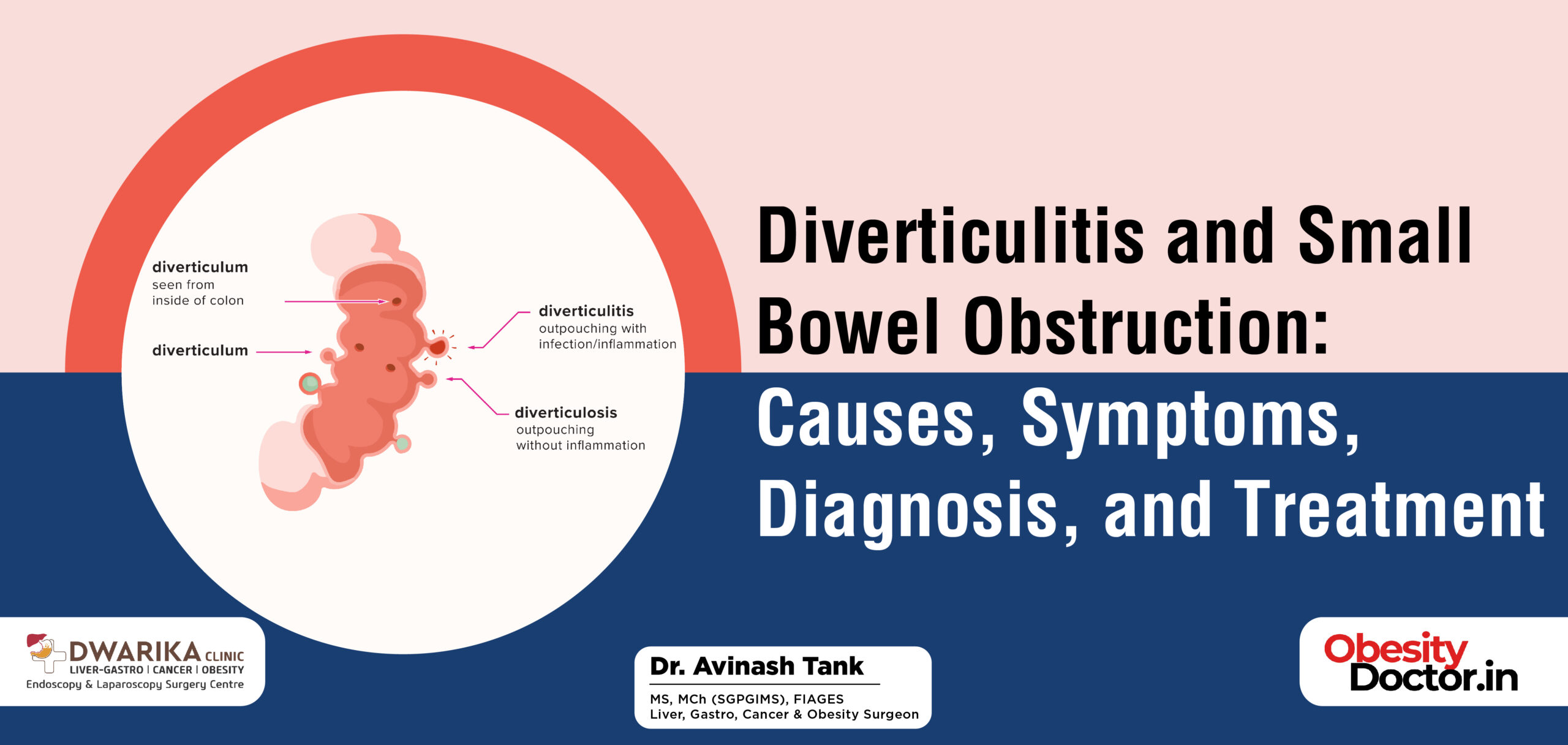
Reading Time: 2 minutes
Diverticulitis and Small Bowel Obstruction: Causes, Symptoms, Diagnosis, and Treatment
Diverticulitis is a condition that involves the inflammation or infection of small pouches called diverticula in the walls of the colon. While diverticulitis typically affects the colon, it can sometimes lead to complications like small bowel obstruction.
In this article, we’ll explore the causes, symptoms, diagnosis, and treatment options for diverticulitis and small bowel obstruction.
Causes of Small Bowel Obstruction in Diverticulitis
Strictures:
- Inflammation and infection related to diverticulitis can lead to the development of strictures or areas of narrowing in the colon.
- These strictures may obstruct the passage of contents into the small bowel.
Fistulas:
- In some cases, diverticulitis can result in the formation of abnormal connections or tunnels between the colon and other nearby structures, including the small bowel.
- These fistulas can contribute to small bowel obstruction.
Inflammation and Adhesions:
- Severe inflammation from diverticulitis can cause adhesions to form.
- Adhesions are bands of fibrous tissue that can attach the colon to nearby structures, such as the small bowel.
- Over time, these adhesions may constrict the small bowel’s movement, resulting in obstruction.
Symptoms of Small Bowel Obstruction in Diverticulitis
When small bowel obstruction occurs as a complication of diverticulitis, individuals may experience symptoms such as:
- Abdominal pain and cramping, which is often severe
- Abdominal distention and bloating
- Nausea and vomiting
- Constipation
- Inability to pass gas
Diagnosis of Small Bowel Obstruction in Diverticulitis
Diagnosing small bowel obstruction associated with diverticulitis involves a combination of methods, including:
Medical History:
- The healthcare provider will assess the patient’s medical history, including any prior episodes of diverticulitis.
Physical Examination:
- A physical examination can reveal abdominal tenderness, distention, and other signs of obstruction.
Imaging Studies:
- Imaging tests such as X-rays, CT scans, or MRIs can help visualize the site and cause of the obstruction.
Blood Tests:
- Blood tests may be conducted to evaluate the patient’s overall health and detect any signs of infection or inflammation.
Treatment for Small Bowel Obstruction in Diverticulitis
The management of small bowel obstruction associated with diverticulitis may include:
Fasting and Bowel Rest:
- Initial treatment often involves fasting and providing intravenous fluids to rest the bowel.
Medications:
- Antibiotics may be prescribed to treat any infection associated with diverticulitis.
Nutritional Support:
- Enteral or parenteral nutrition may be necessary if oral intake is compromised.
Surgical Intervention:
- In cases of severe or recurring obstructions, surgical treatment may be needed to address the underlying issues, such as strictures or fistulas.
When to Consult a Doctor
Patients with diverticulitis should seek medical attention if they experience symptoms of small bowel obstruction, including severe abdominal pain, vomiting, and changes in bowel habits.
Conclusion
while diverticulitis primarily affects the colon, it can lead to complications like small bowel obstruction. Recognizing the symptoms and seeking prompt medical care is crucial for the diagnosis and effective management of these conditions.
